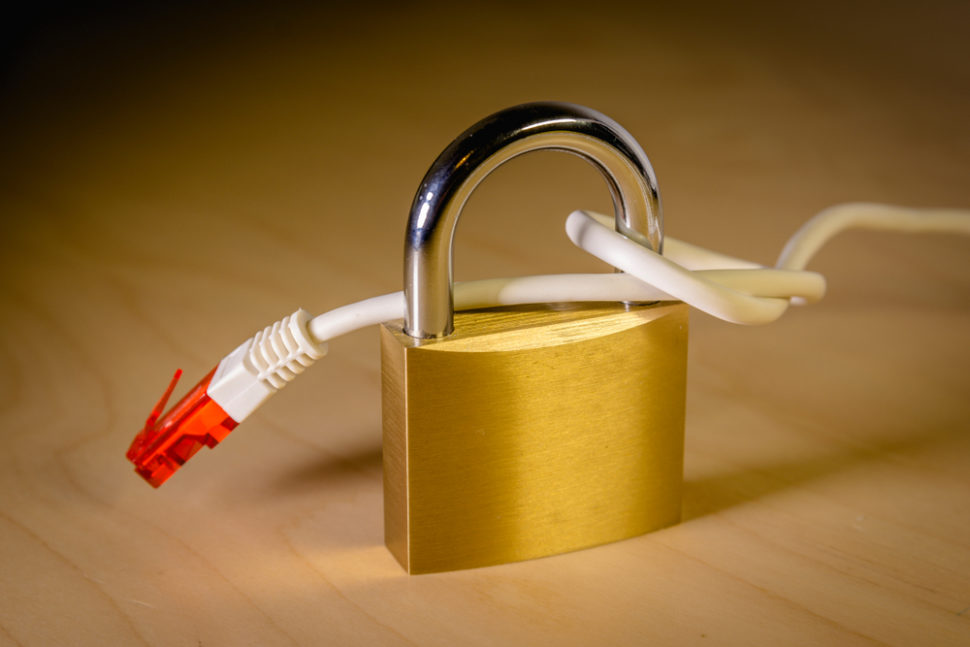A recent study shows how telecom companies like AT&T and Verizon are actively throttling mobile user’s data.
We have written before about how the absence of net neutrality might affect internet users. As it turns out, the fears pro-net neutrality camps expressed may have been well founded.
A group of researchers at the University of Massachusetts, Amherst and Northeastern University conducted a study to discern just how much U.S. telecom companies like AT&T have increased their customer throttling on mobile video since net neutrality’s demise.
Unsurprisingly, the results revealed that all four major U.S. carriers throttle mobile video.

Why the Researchers Wanted to Study This
U.S. President Barack Obama’s administration instituted net neutrality regulations. With the help of the Federal Communications Chairman Ajit Pai, President Trump’s administration saw the repeal of those regulations in June of this year.
As a result of the repeal, major telecom companies can now do things like put up paywalls. They can also throttle customer connections, as well. This all comes with fewer options for recourse on behalf of the customers.
While some wireless carriers such as T-Mobile offer “unlimited data plans“, those plans actually throttle your video after you reach a certain data amount. In fact, many of those plans restrict mobile device video streaming to just 480p by default.
Part of this helps to reduce congestion and manage network traffic. However, it also allows the telecom companies to avoid upgrading or updating their network infrastructure unless they absolutely have to do so.
The study, using the app Wehe, required 100,000 people to sign up and collect a year’s worth of data. One of the study’s authors, David Choffnes, says that the throttling isn’t limited to apps like YouTube with free and paid media.
Paid for media in apps such as Netflix Inc., the NBC Sports app, and Amazon.com Inc’s Prime Video app suffer, too.
Preliminary Data Suggests Undue Throttling
The researchers used the Wehe app to study “differentiation” in data from AT&T, Verizon, Sprint, and T-Mobile.
From January to early May alone, Verizon has 11,100 instances, AT&T had 8,398 instances, Sprint had 339, and T-Mobile had around 3,900 instances.
The size of the networks influenced the instance numbers, of course. But the data doesn’t lie: Verizon had the most instances of any carrier in the U.S.
As of September, they have 500,000 tests with more than 2,000 internet service providers in 161 countries. The full data won’t be available until the researchers have collected a year’s worth of data.
Some instances showed that some T-Mobile customers on Netflix got only 1.77 megabits per second. Other customers got 6.62 megabits per second at the same time. The optics on that don’t look great for T-Mobile.
Interpreting the Data Moving Forward
Jeremy Gillula, the tech policy director at the Electronic Frontier Foundation, talked to Bloomberg about what this data suggests.
“As we saw with Verizon throttling the Santa Clara County Fire Department, ISPs are happy to use words like ‘unlimited’ and ‘no throttling’ in their public statements, but then give themselves the right to throttle certain traffic by burying some esoteric language in the fine print…”
Gillula refers to the now infamous case of throttling earlier this year. Firefighters found evidence that Verizon throttled their data in time of an emergency.
If we want to reclaim some of our power as consumers, tools such as Wehe and studies such as the one outlined in the Bloomberg article will be critical in holding U.S. telecom companies accountable in the wake of net neutrality’s demise.
In an effort to prompt a federal government response, California imposed its own state net neutrality laws. We will see how things progress as the year moves on.


















RECOVER YOUR LOST/STOLEN BITCOIN WITH THE HELP OF GEO COORDINATES HACKER
Cryptocurrency investment halted and turned my life upside down after I invested almost everything that I had worked for all my life. I found myself in a desperate situation after losing 3.7 Million to Bitcoin investment for cryptocurrency. I was depressed and sad until my research took me to a website of GEO COORDINATES HACKER. I explained my situation to them and they assured me to help me get my money back. I gave it a try and they definitely did a great job, all my money was recovered back into my wallet account just within a few days. I’m glad I was able to recover my stolen crypto. Their service is truly reliable. I’m grateful to them. You can get in touch with them through their
Email; geovcoordinateshacker@proton.meEmail; geovcoordinateshacker@gmail.com Telegram ( @Geocoordinateshacker )Website; https://geovcoordinateshac.wixsite.com/geo-coordinates-hack